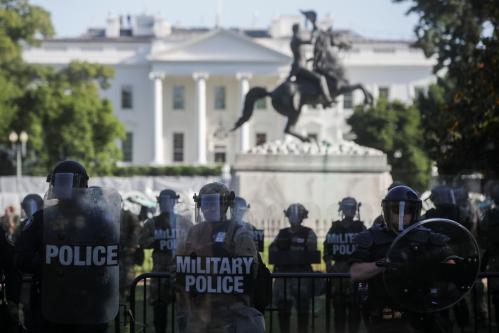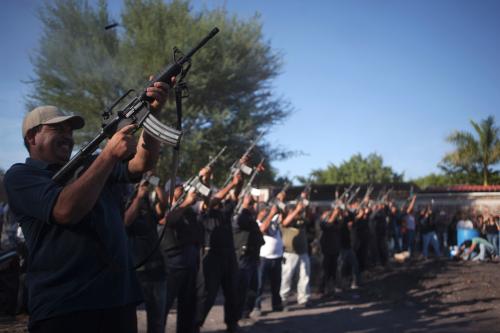In “Calibrating Law Enforcement and Its Purpose,” published by Addiction on November 10, 2014, Vanda Felbab-Brown comments on Harold Pollack and Peter Reuter’s article “Does tougher enforcement make drugs more expensive?” (Addiction, March 2014). Pollack and Reuter find that the street price of drugs has largely been unaffected by drug law-enforcement policies and question the value of stringent enforcement. Felbab-Brown connects this finding to her own research on crop eradication efforts, in which she has argued that eradication often creates highly undesirable effects in supply countries, such as intensifying insurgencies and violent conflict, strengthening the bonds between insurgents and local populations and increasing human rights violations, but fails to bankrupt militant groups that profit from drugs. Afghanistan provides one salient example of such negative outcomes.
But Felbab-Brown notes that the Pollack-Reuter review does not imply that there should be no law enforcement of drug policies. Rather than trying to suppress drug supply and raise the street price, Felbab-Brown argues that law enforcement should focus on shaping the criminal market. Law enforcement should prioritize targeting the most dangerous actors: traffickers with highly violent methods, traffickers supporting terrorist groups, traffickers with extensive capacity to corrupt state institutions and/or those to whom local populations have transferred their allegiance at the expense of the state. While acknowledging the challenges of this strategy, Felbab-Brown argues that targeting the “bad criminals” with far greater intensity can “create signals within the market” and shape the behavior of criminal groups toward business practices that generate fewer security and social harms.
The full article is available here.



Commentary
Calibrating Law Enforcement and Its Purpose
November 10, 2014